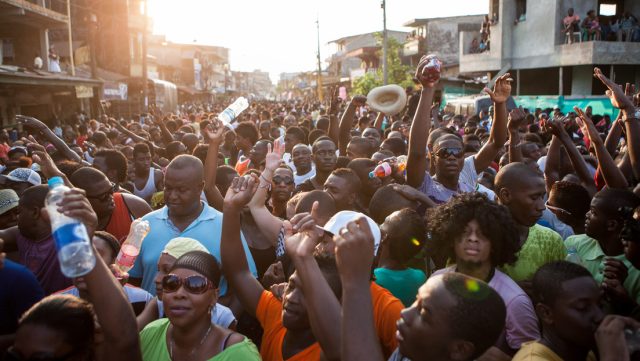The Constitutional Court of Colombia ordered the National Administrative Department of Statistics (DANE) to carry out an exhaustive study to determine what were the causes of the so-called «statistical genocide», an error that «erased» 1.3 million people of African descent between the censuses from 2005 and 2018.
The First Review Chamber, with a presentation by Judge Diana Fajardo Rivera, gave DANE ten months to «comprehensively evaluate» the reason for the «errors in identifying the country’s black population».
This measure, as stated on this high court’s website, is the first of a set of orders that seek to «guarantee that Afro-Colombian populations are duly identified in the next national population and housing census».Afros “invisibilized” in Colombia
The 2018 Census showed that there were 2,982,224 Afro-descendants in Colombia, which represents a reduction of 30.8% compared to the registration made in 2005, when the figure was 4,311,757.
With this error, the rights to equality, to the recognition of diversity, to quality information and to the progressive materialization of the economic, social and cultural rights of the populations that suffered this statistical «invisibility» were violated.
Fajardo Rivera explained that the «shortcomings» and «various factors» in the execution of the most recent census caused a «significant decrease» in the «self-recognition» of the «black population» in the country, which constitutes a breach of the State’s role to guarantee the «right to material equality».
The organizations defending the rights of the Afro-Colombian population had previously stated that a «comprehensive strategy of raising awareness and effective access to the territories» was necessary, in accordance with the «challenges of self-recognition», in a country where there is «stigmatization and marginalization of the black (population)», according to the sentence.
The Court also considered that if there were failures in the census, which is «the largest and most complete statistical operation that a country can carry out», it is difficult for them to be «overcome through smaller-scale statistical exercises», so the adjustments made later by DANE are insufficient to «reverse the threat to the fundamental rights of the plaintiffs and the Afro-Colombian population in general».What should DANE do?
The Court also asked DANE to evaluate and discuss with the Afro-Colombian peoples the «feasibility, risks and convenience» of including in the next Quality of Life Survey, a pilot with a hetero-recognition criterion complementary to the self-recognition used in national statistics.
In the same manner, it was requested that they (DANE) continue with the implementation of the differential ethnic-racial approach and to complete the design of a Comprehensive Preparation Plan for the next Census, which would allow the identification of the aforementioned peoples.Background in Colombia
This ruling was a consequence of the presentation of a guardianship by a group of citizens and social organizations, among which are the Colombian Association of Black Economists ‘Mano Cambiada’; the Afro-Colombian Hileros-PCN Agency Corporation; the Association of Community Councils of North Cauca (ACONC); the National Association of Displaced Afro-Colombians (AFRODES), among others.
The plaintiffs affirmed that the deficiencies of the 2018 Census caused the «violation» of the fundamental rights of the Afro-Colombian population, and that it gave rise to the «statistical invisibility» of a part of that population.
For the high court, this type of «omissions» also obstructed the «design of public policies» to «overcome the enormous gaps that disproportionately affect Afro-Colombian populations».
After knowing the results, in 2019, the National Afro-Colombian Peace Council (CONPA) classified what happened as a «statistical massacre», which revealed the «structural racism that has historically characterized State institutions in Colombia», according to Renacientes.
For its part, the Racial Justice Collective – according to Diario Criterio – considers that there was «misappropriation of funds» destined for the Census, which «would represent an attack against administrative morality and public property».
DANE’s reasons
Among the reasons given by the statistical department were the lack of security in the territories where they had to go, the refusal of citizens to be registered, errors by the census takers, the difficulties with self-recognition as an Afro-Colombian population, the ignorance of the communities of its ethnic characteristics, the population’s mistrust of the registration process, among others.
Although the DANE proposed to establish a Technical Table to solve the errors, the Afro-Colombian Legal Commission, teachers and social organizations denounced «failures in the planning and execution» of the Census.











